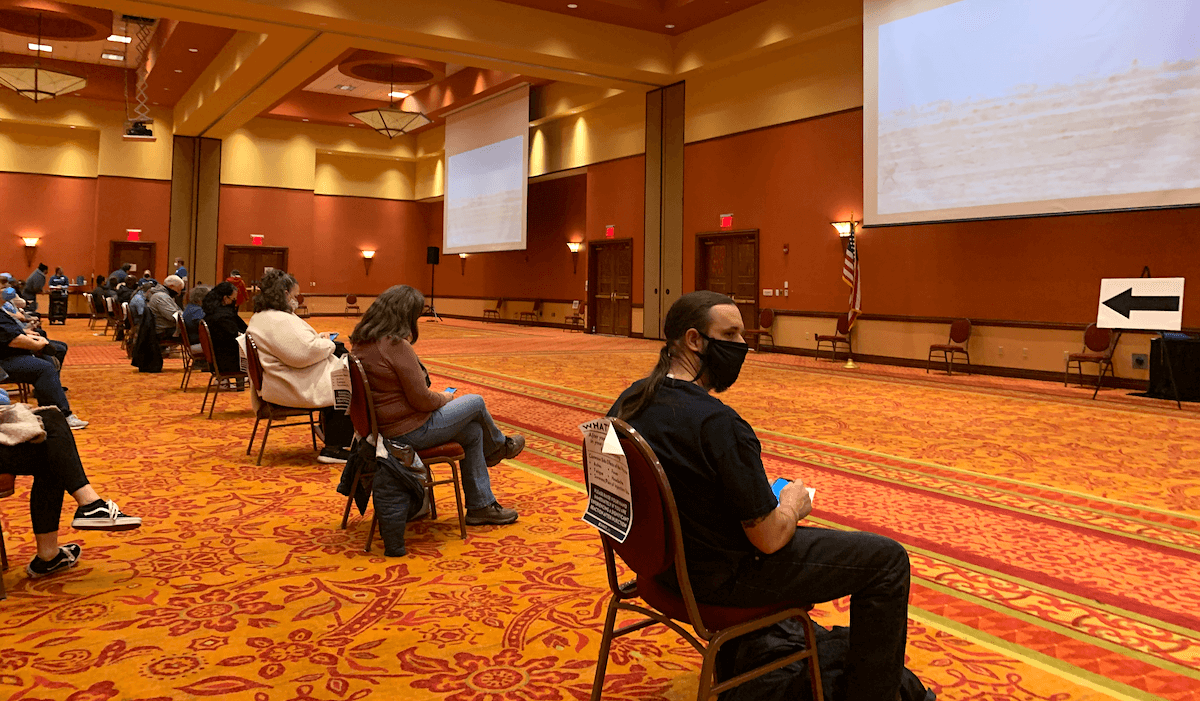
With COVID-19 vaccination rates on the rise and a change in the CDC’s recommendations on some forms of travel, Americans are starting to shake off their year-long pandemic staycation and take trips again.
But even for the fully vaccinated, the globe isn’t open quite yet. Much of Europe remains closed, as do many other destinations. Americans still can’t visit Canada for leisure travel, and cruise ships are mostly stuck. Hawaii requires visitors to take a COVID-19 test 72 hours before arrival and a second test if they want to travel between islands during their stay.
Hopes that things will change so that the European Union and other destinations will be open before long hinge on establishing a reliable way for travelers to prove they’ve been vaccinated.
One potential solution is the development of vaccine passports that prove the bearer has been vaccinated.
But attempts to develop such a system face a number of challenges, including controversy over whether vaccine passports would violate people’s rights. State officials say Oklahoma has no plans to develop or participate in a vaccine passport system, but it should still be possible for traveling Oklahomans to prove they’ve had the required shots.
What is a vaccine passport?
A vaccine passport is a digital or physical record that proves the bearer has been vaccinated. Ideally, the passports would be secure, trustworthy and widely or even universally recognized.
The white CDC cards distributed at clinics across the country are not vaccine passports — partly because they are susceptible to counterfeiting — but in some cases, as with Iceland, they may be accepted as sufficient proof of vaccination for travel.
Currently, there are few actual vaccine passports. The state of New York unveiled its Excelsior Pass earlier this year, which draws information directly from vaccine providers and testing laboratories. Hawaii is working on developing a vaccine passport of its own as well.
Companies like CLEAR are offering services that provide travelers a digital record of their vaccination status via phone app. It can be used to enter stadiums, airports and other venues, according to the company’s website.
Meanwhile, a numbers of states, including Florida, Montana, Arizona, Idaho and Texas, have banned the implementation of vaccine passports. Opponents of the passports argue that they infringe on personal liberties.
Dr. Anthony Fauci, director of the U.S. National Institute of Allergy and Infectious Diseases, has said the U.S. government won’t mandate vaccine passports.
Oklahoma does not, as of yet, have a policy one way or the other on vaccine passports. Asked if the state might develop its own passport system, Gov. Kevin Stitt’s chief of communications, Charlie Hannema, referred to the governor’s previous statements on vaccines.
“The governor has been very clear publicly that the vaccine is a personal choice and should not be mandated,” Hannema wrote.
State has vaccine records

Though the CDC cards might not provide adequate proof of vaccination, they are not the only vaccination record that exists, Oklahoma State Department of Health Deputy Commissioner Keith Reed said.
“We currently do not have plans to implement a vaccine passport system in Oklahoma, but we recognize that residents may need proof of vaccinations for a number of circumstances, including international travel or venue-specific requirements,” Reed said. “Through the state immunization portal, residents vaccinated with state-allocated vaccine can access their immunization record online, which will verify their COVID vaccination status. In addition to the vaccination card provided at the point of vaccination, this ensures our residents have direct access to their personal immunization history.”
Reed said organizations such as IMMY Labs that conduct large vaccination events forward their data to the state as well for inclusion in the Oklahoma State Immunization Information System.
“Any organization that receives vaccine through OSDH is required to enter into our state immunization registry,” he said. “We cannot mandate federally allocated vaccine recipients to do the same, although many do. IMMY does receive vaccine through OSDH and is entering into OSIIS, and therefore the same process for obtaining a record applies.”
Federally allocated vaccine recipients include Native American tribes, the U.S. Department of Veterans Affairs locations and some nursing homes.
Follow @NonDocMedia on:
Travel demand returning
Airlines in the United States have reported an increase in bookings for this summer. Cruise lines are also seeing continued demand, even though their immediate future remains uncertain.
After a severe downturn starting in March 2020, business has been picking up for Bentley Hedges Travel, a travel agency based in Oklahoma City.
“Since the vaccine started going out to people, we’ve been busy,” said Angie Hendricks, who owns the company. “We’ve been sort of overwhelmed in the last month or so. People are anxious to travel.”
Hendricks said she’s heard relatively few questions about vaccine passports, though she has been asked frequently about local virus protocols such as pre-visit testing.
“The passports haven’t come up as much,” she said. “People want to know specifically what they’re going to need to do. When you look at cruises, the ones going now out of foreign ports want proof of vaccination and the card has worked for that. If it’s Hawaii, they want to know about the testing.”
Hendricks said planning ahead for travel is more important now than ever because of restrictions and requirements.
“I would say, for one, thing people should go and get that shot,” she said. “The other thing is to work ahead as much as possible to plan ahead with your travel advisor. There are a lot of unforeseen details that can come up. It can be complicated at times, but staying at home isn’t much fun either.”





















